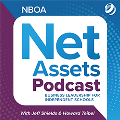May 8, 2020, 1:52 PM
(from NPR) No field trips. No game rooms. No teddy bears. These are some of the CDC's guidelines for reopening schools, childcare centers and day camps safely in places where coronavirus cases are on the decline. The guidance says that where coronavirus is spreading rapidly, child care should only serve the children of essential workers. This is the case today in much of the country, which the guidelines refer to as "Phase 1". In Phase 2, programs can expand to serve all children with enhanced social distancing measures, and in Phase 3, with a lower risk, social distancing will continue. The guidance was obtained by The Associated Press, which reports that the White House tried to keep it from coming to light. The CDC does not have authority to enforce its guidance, which is intended for public information only; the actual policy decisions are up to state and local governments.
More from NPR and the Associated Press
(from the U.S. Chamber of Commerce) The U.S. Chamber of Commerce has developed a new interactive map that allows users to click on their state and see relevant business reopening guidance. Guidance varies widely. In some states, for example, masks are required; in others, they’re suggested. In some states, mask requirements apply only to employees, while in others, customers must wear them, too. In some states, employers are required to screen employees before shifts begin; in others, it’s required after each shift. In still others, it’s not required at all. Meanwhile, some states are leaning on questionnaires, but even then, the questions and retention rules vary.
More from the U.S. Chamber of Commerce
(from CliftonLarsonAllen) Schools that have accepted PPP loans will need to begin grappling with the accounting for them. Sarah Reichling, principal at CliftonLarsonAllen has shared the following:
More from CliftonLarsonAllen and blumshapiro
(from the DOL) The Department of Labor has updated its guidance to respond to new questions which have arisen as the economic focus has shifted from the initial concerns of becoming unemployed to concerns about returning to work. The following questions have now been addressed in the FAQ:
More from the DOL

Listen to the latest episode of the Net Assets podcast.